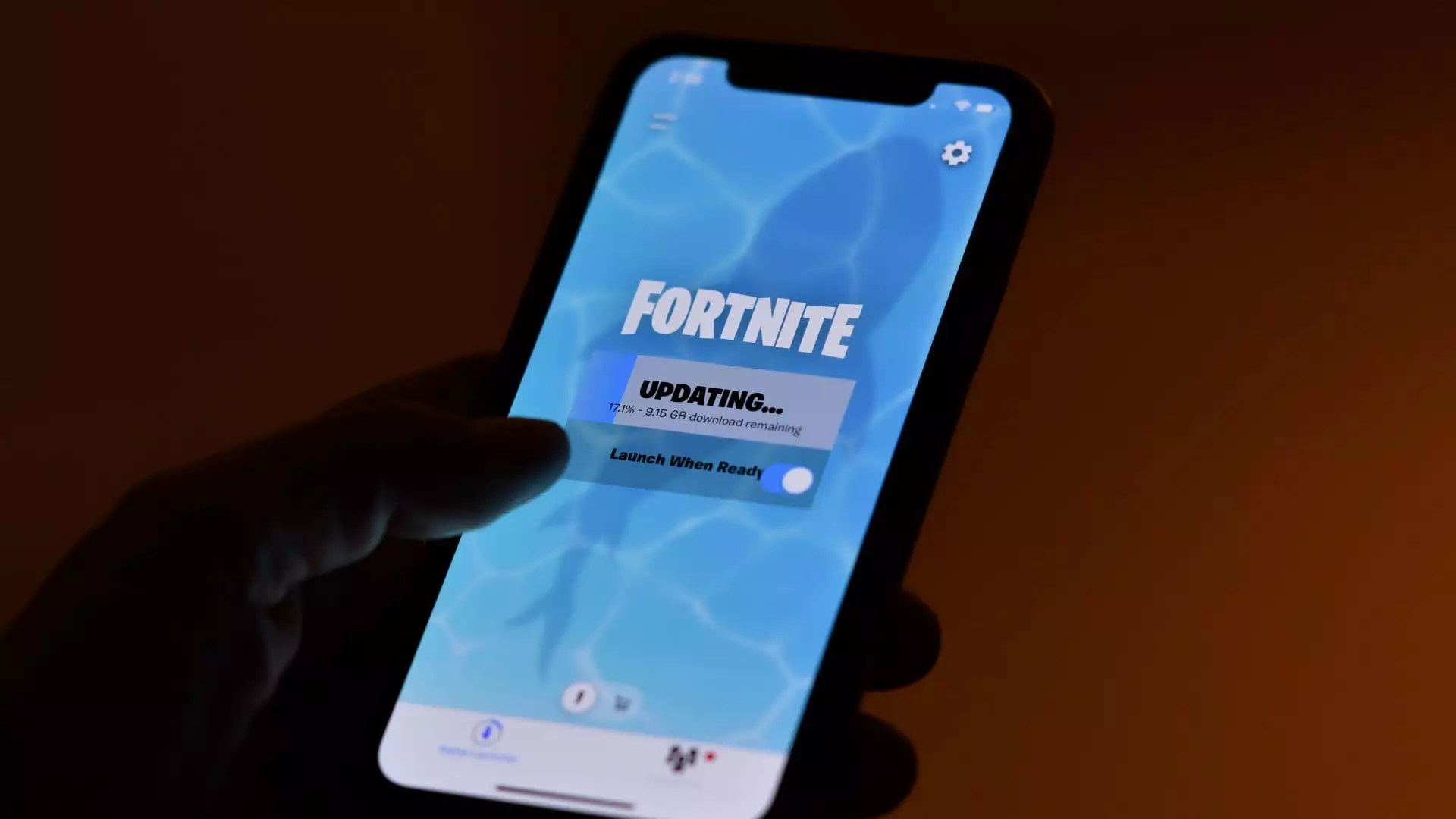In today’s rapidly evolving digital landscape, the face-off between powerhouse tech giants such as Apple and Epic Games truly encapsulates the intricacies of modern corporate governance and consumer rights. The recent court developments surrounding the reinstatement of the wildly popular game Fortnite on Apple’s iOS App Store are indicative of broader trends in how businesses manage their ecosystems and engage with developers. Within this unfolding drama lies a complicated web of legalities, power dynamics, and ethical dilemmas that are not only compelling but essential for stakeholders to understand.
As actions unfold in the courtroom, the tension is palpable. With U.S. District Judge Yvonne Gonzalez Rogers compelling Apple to find a resolution autonomously, it’s clear that the labyrinthine legal contexts are becoming harder to navigate. The court’s insistence that Apple can resolve its issues without further intervention showcases an implicit expectation that this tech giant should be able to operate within the bounds of ethical business practices. As consumers and competitors alike watch closely, the ramifications of this case could resonate far beyond a mere reinstatement of a game.
The Implications of Overreach
Apple’s decision to block the re-submission of Fortnite comes not from a place of defensiveness but from the illusion of invincibility that has so often characterized its corporate behavior. In the throes of this struggle, one cannot ignore the transformation of the consumer bases that these companies serve. While Apple has often been praised for its innovative platforms and sleek design, this legal maneuvering demonstrates a growing disconnect between corporate policies and consumer expectations for transparency and fairness.
This approach may be interpreted as overreach, and not without justification. Epic Games’ pull toward enforcing court-instructed communications reveals a larger consumer sentiment—a raising of voices that decries excessive control over digital marketplaces. After all, Fortnite was initially removed from the App Store on grounds that Epic had skirted Apple’s payment protocols. This incident highlights a crucial turning point: the balance of power in the developer-Apple relationship is being scrutinized in unprecedented ways.
Consumer Rights vs. Corporate Power Plays
At its core, the ongoing saga is not merely about the fate of a popular game; it encapsulates a fundamental struggle over consumer rights versus corporate Hercules-like strength. Judge Rogers’s statement—to require that Apple’s compliance officer personally appear at court—sends a bold signal that the court regards Apple’s methods as potentially disruptive to fair competition. Should the company continue to wield an iron fist, brick-by-brick, its reputation could begin to crumble under the pressure of accumulated public discontent.
Epic Games’ CEO Tim Sweeney’s assertion that Apple intends to “ignore” their submission until after the Ninth Circuit’s ruling encapsulates a critique against non-linear decision-making typical of corporate giants. This approach simply cannot stand in a landscape where consumers are vocal, empowered, and increasingly vigilant. The question remains, how many more forwards and backwards will result from the legal tug-of-war before solutions that reflect both corporate and consumer interests materialize?
A Looming Threat to App Ecosystem Integrity
As developers like Spotify and Amazon Kindle follow suit in recharging their apps for outside purchases, one cannot ignore the gravity of Apple’s legal battles potentially threatening its once-unassailable status in the app ecosystem. While the Apple narrative has largely centered around innovation, it’s now increasingly punctuated by necessity—an urgent call for more equitable practices if they wish to maintain their dominant position in a market that is shifting beneath their feet.
In this context, Apple stands at a crossroads; it must determine whether it will bestow greater liberties to developers, thereby aligning itself with more contemporary business ethics, or choose to dig its heels in—risking not just its relationship with innovators like Epic Games but potentially alienating a contemporary consumer base hungry for real options and better service for their purchasing decisions.
This battle between Apple and Epic is emblematic of a larger battle over the dynamics of power in the high-tech realm, and if they fail to find common ground, it could lead both companies into an era of irreparable reputational damage. Wrong turns in this negotiation may mean that the monopoly held by major tech operators could shift, paving the way for a new order among digital platforms. The bravery to change is not an inconvenience but an expected evolution.


Leave a Reply